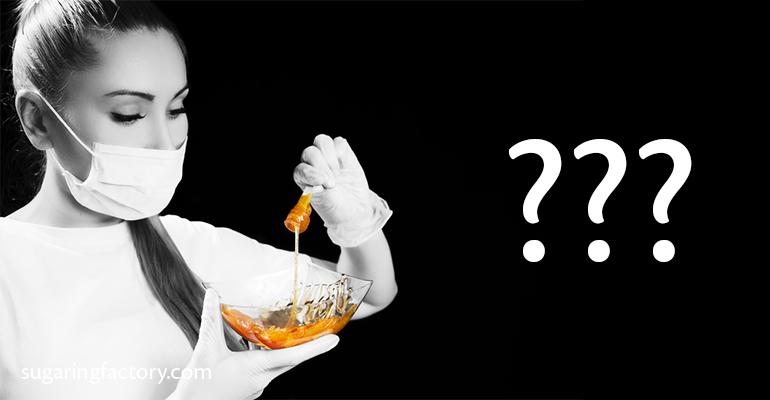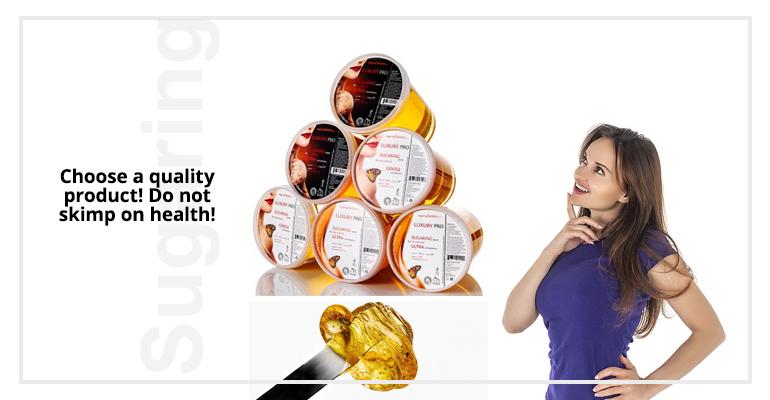
I often hear practitioners say "all sugar pastes are the same"
Why do people tend to choose Luxury cars if they can choose? Why don't I need to explain what is the difference between a house and a shed? Why do people think first about the price?
The producers of the sugar paste and there are a lot of them, have different approaches toward their business. Very often people are guided by an itch for easy gain, as sugaring paste consists of very simple ingredients: sugar, water, and lemon juice! So easy!
Everybody can start cooking the miracle in a pan in their kitchens, so all the sugar paste manufacturers are cheaters and charlatans, aren't they? If you think about it, the bread is just flour, water, and eggs. The shampoo is water and some caustic soda. Beer is simply hop, malt, yeast, and water.
So why the manufacturers try to make money out of...water
Everybody who tries to simplify things forget about another very important and expensive ingredient: the labor and people's knowledge multiplied by time spent on producing these goods. But sugar paste is not only sugar, water, and lemon juice.
Sugar paste is, first of all, laboratory research, work of chemists who develop the perfect formula. It takes a lot of work to learn the process and ability to distinguish monosaccharide sucrose from fructose, to understand the fermentative hydrolyze specifics, and it takes a lot of hours to find the optimal proportion of the ingredients.
Sum up knowledge of marketing and ability to organize an efficient and honest campaign, rent, salary, expensive equipment, logistics and on top of that, as much as your conscience will allow you to, add a bit of interest margin with a tiny bit of profit.

Do you still think it's an easy thing?
Yes, you can cook sugaring at home in your kitchen. The web is full of recipes like: "2 lemons, 2 glasses of water, 2 pounds of sugar".
And there are many practitioners who make caramel in a saucepan and sincerely believe that "if there's no difference, there's no reason to pay more".
Almost all manufacturers started from the "garage" and "kitchen" and that's a usual story. There's nothing bad about it.
Practitioners started from small steps but soon they understood that along with their companies' growth they needed to "grow" their skills, knowledge in managing people, they needed to learn to delegate tasks, teach others, take more responsibility. And they grew, as much as they could.
The first thing the "home chefs" face is stability and product quality. The quality of ingredients can change very often, not to mention the enormous difficulty of getting the same density and elasticity of the paste every time. What water acidity and hardness to choose? What ingredients? What equipment to use?
How many types of autoclaves and fluidmeters you know and which is the only one you can use for sugaring? What is “technical data sheet”?
Sugar paste is one of the most difficult products in the cosmetic market. It's harder to produce than scrubs, lotions, gels and any other beauty product.
You should not add any foreign matter. Any chemicals, preservatives colors to it. The "improving agents" immediately trigger the process of oxidation and the paste deteriorates or turns into a substance that doesn't even resembles the sugar paste. The main complexity of production is extreme technical process requirements.
If your manufacturer often mixes up the density labels on the container it's the first sign of non-professionalism.
It's not difficult to produce a relatively good light-colored product at home. After gaining minimal experience almost anyone will be able to produce the amount of paste enough for oneself and one's friends who also provide sugaring services. All helluva nuances of sugar paste producing start when the order for first 100 container comes in and you cannot make the whole amount of the paste with the strictly same parameters.
First of all, sugaring is skill and knowledge. It is the professionalism and efficiency poured into containers.
And only after that, it's the product.


 Cart
Cart 